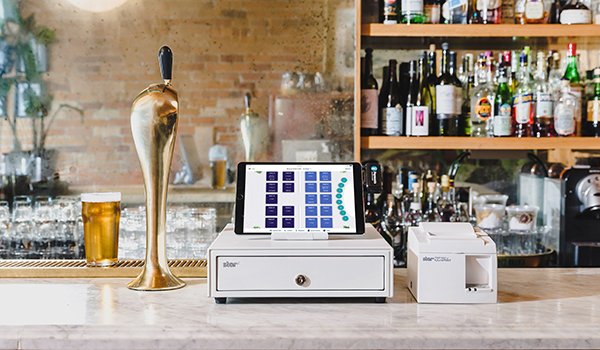In the rapidly changing world of the service industry, improving guest experience is crucial to success. As businesses endeavor to stand out in a fierce market, the adoption of up-to-date technology plays a crucial role. Among these developments, Point Of Sale (POS) systems have risen as powerful tools that not only enhance operations but also enrich the overall experience for guests. From hassle-free transactions to detailed data analytics, a modern POS system is more than just a cash register; it is an essential component of a successful hospitality business.
The development of POS systems has seen a shift from traditional cash registers to cutting-edge, cloud-based platforms. This evolution has changed how businesses operate and engage with their clients. In this article, we will examine what a POS system is, how it can enhance hospitality operations, and the best capabilities to look for when choosing a system for your venue. By understanding the impact of these systems, businesses can leverage their power to create memorable experiences for their guests.
Grasping Point of Sale Systems
A POS system is a electronic solution that facilitates the transaction procedure between companies and their clients. At its core, it merges applications and hardware to manage sales, optimize operations, and enhance the complete customer experience. Contemporary POS solutions go beyond classic cash tills, offering a wide array of functionalities such as transaction handling, stock control, and even customer engagement. As a central hub for transactional and operational data, POS systems play a vital role in day-to-day business activities.
The advancement of POS systems has seen a significant shift from mechanical cash registers to sophisticated cloud-based platforms. This shift reflects a broader trend in technology, allowing businesses to access real-time information from anywhere, enhance security features, and increase trustworthiness. With cloud-based systems, companies enjoy automatic upgrades, remote access, and a more flexible framework. Such developments empower businesses to tailor their POS systems to meet specific industry needs, thereby enhancing operational effectiveness and adaptability.
In the hospitality industry, the function of POS systems goes beyond mere transaction processing. https://impos.com.au/venue/restaurant-pos-systems/ serve as a essential tool for improving guest experiences, allowing for faster service, tailored services, and better general management of customer interactions. By integrating critical capabilities such as mobile payments and touchless transactions, hospitality companies can cater to the changing desires of their clientele. As a consequence, investing in a modern POS solution is crucial for remaining competitive and ensuring a smooth, pleasant time for clients.
Transforming Commerce with Advanced POS Solutions
Modern POS systems have radically changed the landscape of enterprises, especially in the hospitality industry. Gone are the eras when only traditional cash registers were in use. Today’s POS systems are provided with cloud technology technology, facilitating real-time data access and management. This transformation not only optimizes transactions but also enhances operational efficiency by combining various operational tasks like inventory management and sales analytics into a unified user-friendly interface.
Integrating a contemporary POS system enables businesses to deliver an enhanced customer experience. Customer interactions are more seamless and more tailored, thanks to the data-driven insights that these systems offer. With features like mobile POS capabilities, staff can help guests away from the counter, expediting service and creating a more inviting atmosphere. The integration of contactless payments further speeds up the transaction process, appealing to a tech-savvy clientele that prioritizes convenience.
Additionally, modern POS systems are designed to grow with the business, offering scalable solutions that address the evolving needs of hospitality venues. As operations develop, these systems can seamlessly integrate additional features and functionalities, ensuring a seamless transition. This adaptability not only assists in maintaining customer satisfaction but also adds to improved employee productivity, allowing staff to focus on delivering top-notch service rather than getting caught up by menial duties.
Security and Combining of POS Systems
The security of POS solutions is paramount in the service sector, where the protection of private customer data is critical. Businesses must guarantee that their POS systems are designed with robust security features to defend against cyber threats. This involves encoding of data during exchanges, secure payment handling, and compliance with sector regulations like PCI DSS. Frequent updates and security audits are essential to protect against threats, guaranteeing that the system remains resilient to emerging threats.
Integration is another key factor of modern POS systems that greatly enhances efficiency in hospitality operations. A well-integrated POS can seamlessly integrate with other business solutions, such as accounting software and inventory management tools, streamlining processes and minimizing the risk of human mistakes. This integration means that businesses can control their processes more effectively, combining customer data and sales insights to make wise decisions that foster success.
Furthermore, the importance of customer relationship management (CRM) systems within POS integration cannot be ignored. By linking POS data with CRM software, businesses can gain a better insight of their customers’ preferences and behaviors. This enables personalized experiences, targeted marketing efforts, and ultimately, improved customer engagement. A safe and cohesive POS system not only enhances functional efficiency but also contributes greatly to enhancing the overall customer experience in service.

